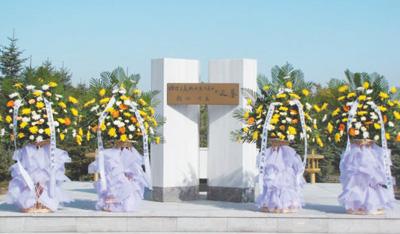
This year marks the 40th anniversary of the conclusion of the Sino-Japanese Treaty of Peace and Friendship, and some of our Japanese friends who have contributed to China's cause of peace are remembered, and Hideko Midorikawa, who has been awarded the title of "Fighter of Internationalism," is one of them. Hideko Midorikawa, whose original name was Teruko Hasegawa, was born on March 7, 1912 in Yamanashi Prefecture, Japan. Hideko Midorikawa is the name she took in Esperanto, meaning "green May", "green" symbolizes peace, and "May" means unity and struggle for communists.
After the Japanese militarism launched the "918" invasion of China, at a Esperanto learning meeting, Hideko Midorikawa said on the spot: "As a green Esperanto speaker, I am undisguised in opposing the war of aggression! A few days later, the police arrested Hideko Midorikawa on charges of "a person with dangerous ideas" and "a sympathizer of the Communist Party." Ten days later, forced by public opinion and the solidarity of classmates, the authorities released Hideko Midorikawa and others.
In 1933, Hideko Midorikawa joined the Japanese Proletarian Esperanto League and began to actively participate in Esperanto activities. Esperanto not only enabled Hideko Midorikawa to go global and become an internationalist fighter who defended justice and opposed wars of aggression, but also allowed Hideko Midorikawa to meet Liu Ren, an international student from northeast China. The pair of foreign youth came together based on a common hobby and support for China's just cause. In January 1937, Liu Ren returned to China to participate in the anti-Japanese national salvation activities, and three months later, Hideko Midorikawa bid farewell to her mother who was seriously ill, arrived in Shanghai with a portable Esperanto typewriter, and has since thrown herself into the ranks of the anti-Japanese salvation of the Chinese people.
In Shanghai, Hideko Midorikawa witnessed the deep disaster brought to the people of Chinese by the "August 13" massacre launched by the Japanese Kou. In an article titled "Love and Hate," she wrote: "I love Japan because it is my homeland, where my parents, siblings, relatives and friends live — for whom I have infinitely affectionate nostalgia." I love China because it is my new hometown, and there are many kind and hard-working comrades around me. I hate, I do my best to hate the Japanese warlords who are slaughtering Chinese people..." Hideko Midorikawa actively participated in the editing of the journal "China Roar" that opposed Japanese aggression, and published articles such as "China's Victory is the Dawn of Asia." She wrote: "Now, if possible, I am willing to join the Chinese army because it fights for national liberation, not against the Japanese people, but against the Japanese imperialists." ”
At the end of June 1938, through Guo Moruo's arrangement, Hideko Midorikawa and Liu Ren came to Wuhan, the center of the war, to carry out radio propaganda work in the International Propaganda Office. At about 19:00 on July 2, 1938, Hideko Midorikawa solemnly walked into the wartime broadcast room, and a soft, rounded Japanese female voice was immediately transmitted by the radio waves in all directions, and also to the Japanese mainland: "Now it is the broadcast conversation of Chinese radio to the Japanese army!" Some Japanese officers and men either deserted the troops or refused to participate in the war, and some even committed suicide by jumping into the sea, and many soldiers expressed their willingness to die for the fascist aggressive policy of the so-called "Greater East Asia Co-Prosperity Sphere"...
Hideko Midorikawa was a good friend of the Chinese people and a heroic fighter for internationalism who threw himself wholeheartedly into China's War of Resistance. At a rally in Chongqing in 1941, Comrade Zhou Enlai praised her in public: "In fact, you are a loyal and good daughter of the Japanese people, a true patriot." Comrade Deng Yingchao also cordially said to her: "We fight side by side! On August 15, 1945, Japan announced its unconditional surrender. Hearing this news, Hideko Midorikawa was extremely excited and happy! Later, according to the organizational arrangement, the Hideko Midorikawa family traveled for more than a year to reach Jiamusi in the northeast. At the welcome meeting held by people from all walks of life in Jiamusi, Hideko Midorikawa said excitedly: "As early as 5 years ago, I expressed to Vice Chairman Zhou Enlai that I would be the daughter of the chinese and Japanese peoples. Now I want to make full use of my time to write the sequel to "China in Battle" and report it to the Chinese and Japanese peoples. ”
In January 1947, Hideko Midorikawa died of a bacterial infection during an operation at the age of 35, and her husband Liu Ren also died in the same year due to grief and overwork. The Chinese government posthumously awarded Hideko Midorikawa and his wife martyrs. In 1980, a Sino-Japanese co-production of a film reflecting the life deeds of Hideko Midorikawa and Liu Ren was screened separately in the two countries, and Deng Xiaoping personally inscribed the title of the film "Star of Wangxiang". In 1982, the Secretariat of the Central Committee of the Communist Party of China approved Hideko Midorikawa as a fighter for internationalism. On August 8, 1983, a mausoleum and monument with the national styles of China and Japan (pictured, file photo) was inaugurated in the Jiamusi Martyrs Cemetery. The life of The Battle of Hideko Midorikawa and his wife is forever engraved on this monument, and it is also forever engraved in the hearts of the Chinese and Japanese peoples.
Draft: Cai Huawei
People's Daily ( 2018-08-26 07 edition)
(Editor-in-charge: Guan Xiyan, Zhou Tian)